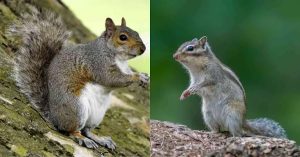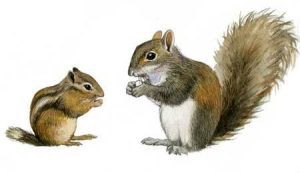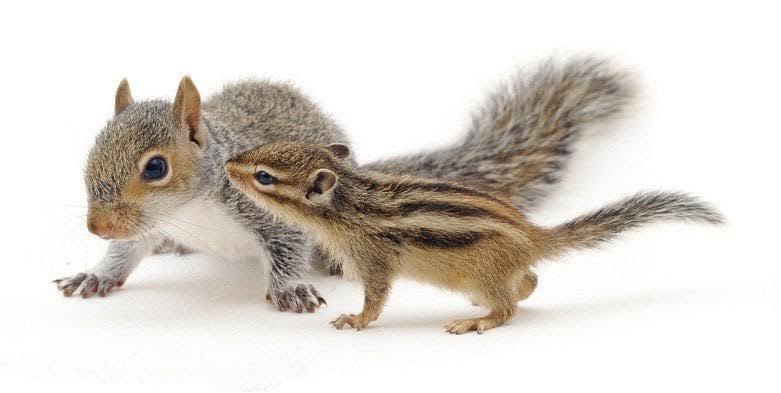Can Chipmunks and Squirrels Mate?
Exploring the Boundaries of Interspecies Reproduction

Introduction:
Have you ever wondered if chipmunks and squirrels, two small and adorable creatures commonly seen in ouryards, can mate and produce offspring? Outdoorsmoment in this article aims at exploring into the realm of interspecies reproduction and to conclude whether chipmunks and squirrels can engage in such unconventional unions.
The Study Behind Interspecies Reproduction
Interspecies reproduction could be said to be the mating between two individuals of different species. Whereas generally mating is within same species, some rare cases of inters mating have been documented in the wild. However, the success and viability of these unions vary significantly.
Understanding Reproductive Compatibility
For reproduction to occur successfully, consider these two crucial aligning factors – genetic compatibility and anatomical compatibility. Genetic compatibility is defined as the ability of genes from two different species to interact and create a viable offspring while Anatomical compatibility involves the physical aspects required for mating and conception.
The Unpredictable Consequences
In various cases, when interspecies mating occurs and produces offspring, the resulting offspring is called hybrids. Hybridization has been studied in various animal species and can lead to surprising outcomes. However, it is important to put into consideration the potential implications and challenges associated with hybridization, as it may disrupt the delicate balance of ecosystems and introduce new genetic characteristics.
The Family Chipmunks and Squirrels

Both chipmunks and squirrels can be said to be siblings, belonging to the same family Sciuridae and sharing several similarities in their physical appearance and ecological niche. Although, despite their close evolutionary relationship, the mating between chipmunks and squirrels has not been scientifically documented.
Consider Their Genetic Compatibilities
Genetic compatibility plays a fundamental role in determining the feasibility of interspecies reproduction. Regardless of the fact that chipmunks and squirrels share a common ancestry, evolutionary divergence over time may have led to genetic differences that hinder successful mating. As such, it is unlikely that chipmunks and squirrels can produce viable offspring due to their genetic incompatibility.
Anatomical Compatibility
Even though chipmunks and squirrels belong to the same family, anatomically they also exhibit distinct differences, particularly in their reproductive organs. These differences, joined by the absence of documented cases of interspecies mating, further implied that chipmunks and squirrels may not be anatomically compatible for successful reproduction.
The Complications of Interspecies Reproduction
Interspecies reproduction is a complex and intriguing field of study. While chimera and hybridization are known phenomena in the natural world, the success and implications of such unions vary greatly across species.
Nature’s Exceptional Cases
Surprising instances of interspecies mating have been observed in the animal kingdom. For instance the liger (lion-tiger hybrid), zonkey (zebra-donkey hybrid), and even the cama (camel-llama hybrid). These infrequent occurrences show the incredible diversity of life and remind us of the wonders nature offer.
Ethical Considerations Of Interspecies
When considering interspecies mating, it is pertinent to address the ethical implications of breeding or manipulating animals solely for novelty or human curiosity. Respecting the natural order and preserving the integrity of each species should guide our actions and decisions in this area.
Conclusion
Embracing Nature’s Diversity
Even though interspecies mating has been observed in some instances in the animal kingdom, it is likely impossible due to genetic and anatomical differences to successfully mate chipmunks and squirrels. The world of interspecies reproduction remains a fascinating subject, showcasing the complexity and vastness of life on Earth.
In as much as scientific exploration continues, it is necessary to embrace nature’s diversity by appreciating the uniqueness of each species, respecting the boundaries already established by nature so as to celebrate the wonders of the natural world without compromising the delicate balance of ecosystems.



